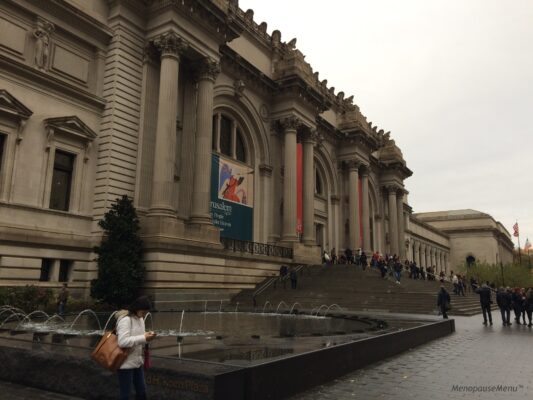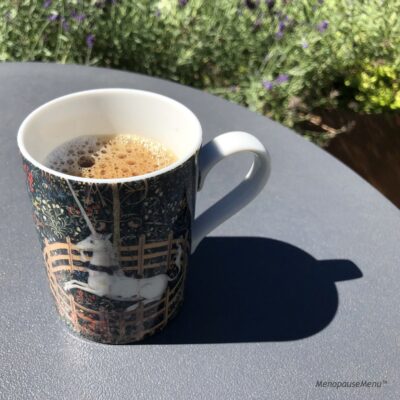This story actually begins in childhood when I studied classical piano for many years, practicing daily after school on my mother’s Winter upright piano in the basement. On the wood paneled wall behind me to my left hung a framed poster of The Unicorn in Captivity. This was from the famous Unicorn Tapestries, or “The Hunt of the Unicorn,” 1495-1505, which are world famous and remain mysterious to this day.

Of course, I didn’t know any of that when I was at the piano. I would often stop and gaze at the picture, wondering what the story was all about.
From my early-teen perspective the unicorn looked sad and injured to me. Yet, it also looked beautiful. I loved the intricate plants and forest all around the animal. I didn’t give it any further thought except for a brief glance every day.
I didn’t think of this picture again until five years ago when my husband and I went to New York City to celebrate our 25th wedding anniversary. Among many great places we went to the Metropolitan Museum of Art, exiting via the gift shop. I actually froze in place when I saw a cup with that very picture on it.

I know, most folks bring home mugs that say “I heart NY.” I brought two unicorn cups home with me.
Fun fact: Winter pianos were made in New York City.
I soon went down the internet rabbit hole and started learning of the origins and mysteries surrounding the tapestries which, since 1938, are permanently housed at the Cloisters, the Met’s medieval art collection in upper Manhattan.
One version of the story is that the unicorn was lured into captivity during a medieval hunt to be sacrificed (along the lines of Christianity in the Middle Ages). That would explain the chain around the neck, the fenced enclosure, the wounds dripping blood, and so on.
But, then I considered the secular interpretation. The unicorn was tied very loosely, so was not really captive, and the fence was low enough it could easily jump out of its enclosure. The chain was gold, a symbol of love. Most interestingly, the trees were pomegranate trees and the “wounds” were actually pomegranate berry juice dripping onto its body.
Symbolism abounds! Sacrifice, resurrection and paradise –– but also love, wisdom, marriage, devotion and fertility.
Analogies to the menopausal journey are hard not to miss: different interpretations and experiences by different people; stressful; messy; yet (ultimately) heralding wisdom and relief.
And, just like the Middle Ages, menopause typically begins in middle age. How fitting too, as so many going through menopause are often focused on their changing midriff!
That’s a lot to contemplate as I drink my morning coffee.
